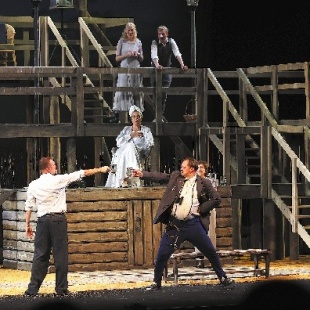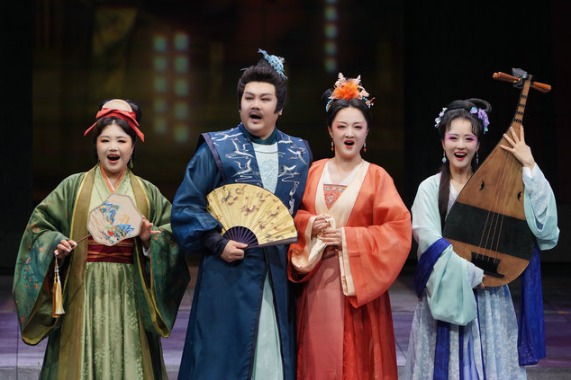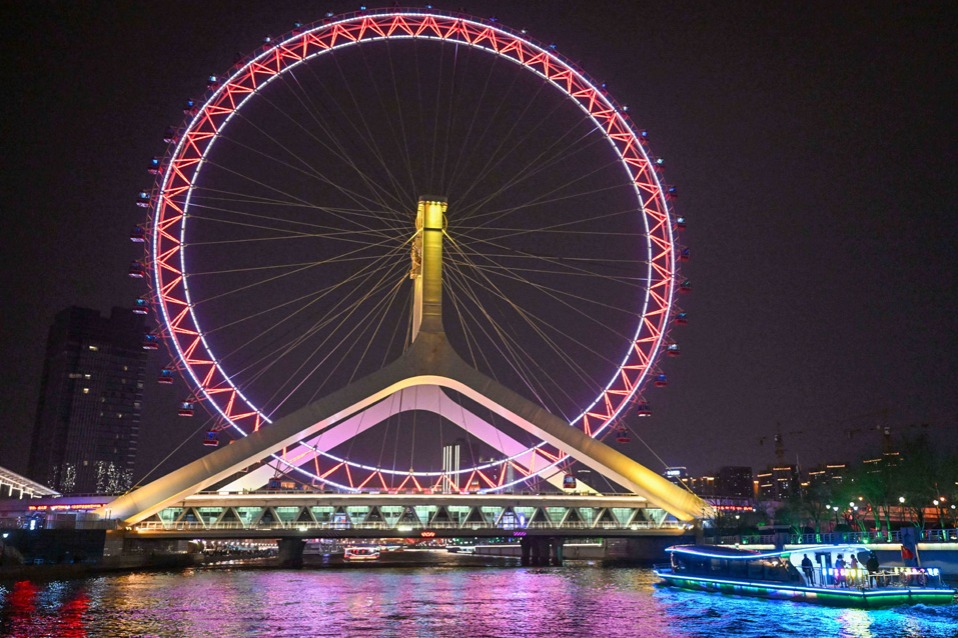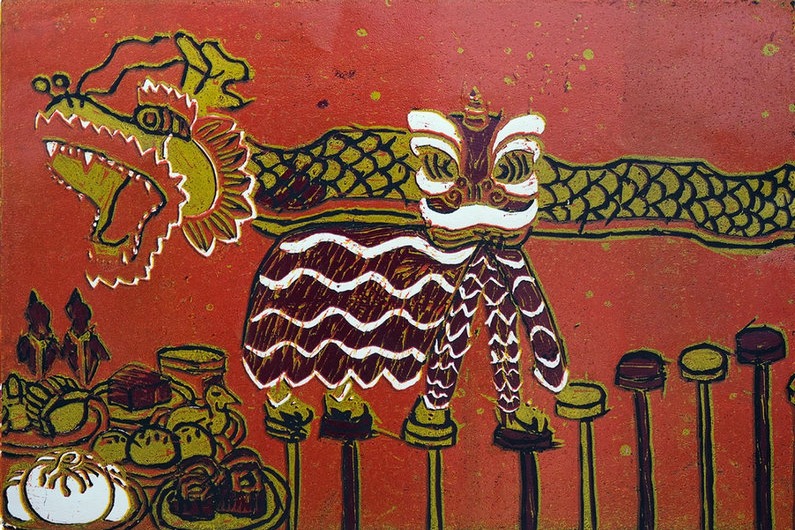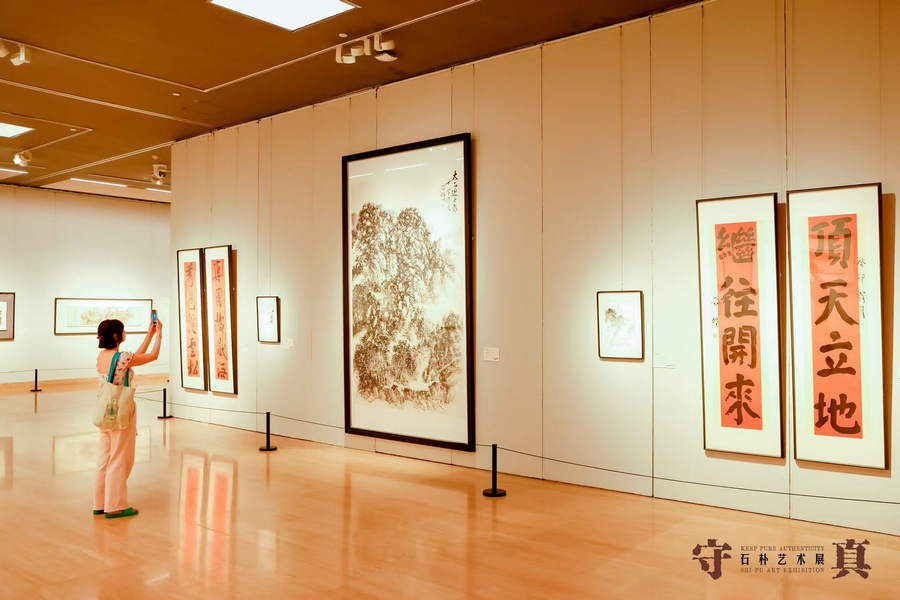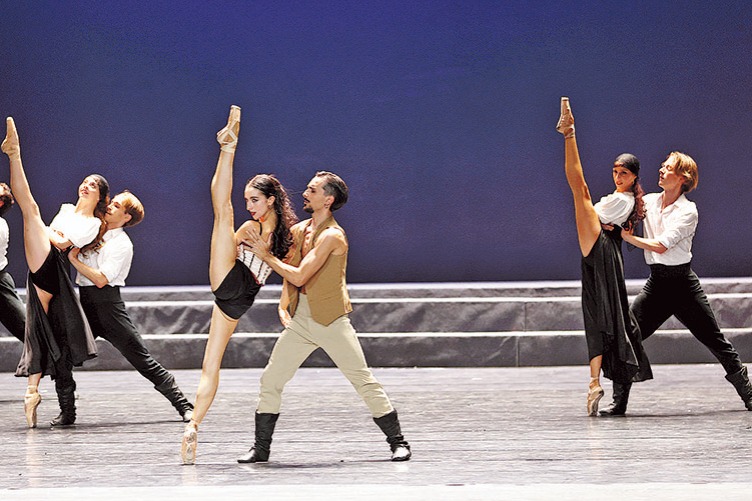Russian production plays on emotions
On tour across China, director brings contemporary version of acclaimed stage story to tug at the hearts of theatergoers, Chen Nan reports.

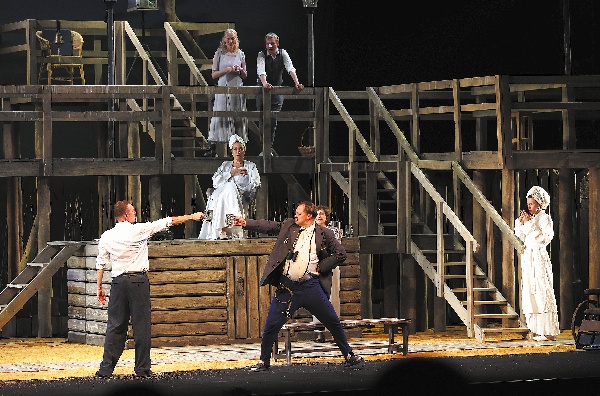
Konstantin Khabenskiy's direction of The Seagull is nothing short of transformative. Touring China as part of the prestigious Moscow Art Theatre's international program, this production breathes new life into Anton Chekhov's classic while also reflecting the timelessness of its themes.
On Aug 8, Khabenskiy, who is also the artistic director of the Moscow Art Theatre, presented his rendition of The Seagull to an audience in Beijing. While the play's universal themes of love and existential despair resonate with every generation, Khabenskiy's production adds a layer of emotional abstraction and psychological depth, allowing The Seagull to transcend time and space. His sensitive direction and ability to capture Chekhov's essential truths have turned this touring production into a cross-cultural experience — one that speaks directly to the hearts of Beijing theatergoers.
The China tour of The Seagull by the Moscow Art Theatre kicked off with performances in the capital on Aug 8-10. The tour will continue with shows in Shanghai from Aug 15 to 17 and Xiamen, Fujian province, from Aug 22 to 24.
"Chekhov's works have found a strong following among Chinese audiences, thanks to skilled translators who have introduced his literary style to the Chinese-speaking world," says Zhang Zhaohui, CPC Committee Member and deputy general manager of Beijing Poly Theatre Management Co, which is collaborating with the Russian theater's China tour.
Zhang also notes that the tour coincides with the 165th anniversary of the birth of the renowned Russian writer and dramatist.
Written in 1896, Chekhov's world-famous play The Seagull has maintained its popularity not only in Russia but among directors worldwide. The play dramatizes the romantic conflicts of four main characters — Irina Arkadina, a fading middle-aged actress; her lover, Boris Trigorin, a successful fiction writer; Irina's son, Konstantin Treplev, a young and ambitious playwright; and Nina Zarechnaya, an aspiring young actress with whom the son is in love.
One of the most notable stage adaptations in China was produced by the Beijing People's Art Theatre in 1991, with translation by Chinese scholar Tong Daoming. The production featured a venerable cast of veteran Chinese actors, including Pu Cunxin, Xu Fan and Yang Lixin, and was directed by Oleg Efremov, then the artistic director of the Moscow Art Theatre.
According to Khabenskiy, who became the artistic director of the Moscow Art Theatre in 2021, the birth of the theater is intrinsically tied to Chekhov's drama. The Moscow Art Theatre, founded in 1898 by Konstantin Stanislavsky and Vladimir Nemirovich-Danchenko, was pivotal in bringing Chekhov's works to life with a new approach to acting and directing. It was this theater company, renowned for its innovation in realism, that famously staged Chekhov's plays, including The Seagull, with a focus on naturalistic performances and psychological depth.
In 1898, Stanislavsky directed the first major production of The Seagull at the Moscow Art Theatre. The production was groundbreaking because it marked a departure from traditional theatrical performances. Before this, Russian theater often relied on exaggerated gestures, melodramatic performances, and artificial settings. Stanislavsky's production emphasized the internal emotions of the characters and the subtleties of their interactions. This approach was revolutionary and would become the foundation for Stanislavsky's methods of acting, which later influenced directors and actors worldwide, including Chinese artists.


